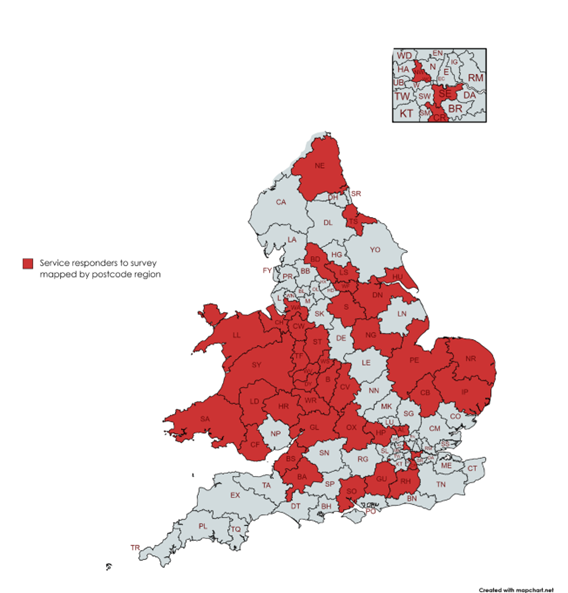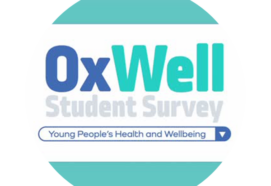In this post we introduce a research project which is investigating crisis care for children and young people, up to the age of 25, in England and Wales. We’re funded by the National Institute for Health and Care Research (NIHR) Health and Social Care Delivery Research (HSDR) Programme, and commenced our work in November 2022 with a schedule to complete in April 2025.
Crisis care
We recognise that no single, agreed, definition, of ‘mental health crisis’ exists. The definition of ‘crisis services’ we’re using is one which we developed in an earlier project (Evans, Carrier et al. 2019), which is:
services which are provided in response to extreme psychosocial distress, which for children and young people may be in any location such as an emergency department, a specialist or non-specialist community service, a school, a college, a university, a youth group, or via a crisis support line.
What’s the evidence?
The earlier project from which this definition is derived was an evidence synthesis, also funded by the NIHR HSDR programme, the main findings from which have recently appeared in early online form in Child and Adolescent Mental Health (Edwards, Carrier et al. in press). Evidence syntheses combine information from multiple sources to present as complete a picture as possible of the state of knowledge in a given area. In this review we found only three UK research studies examining crisis responses for young people, creating a clear case for new investigations in this important area.
Aim and objectives
Our aim is to explore the types of mental health crisis response provided to children and young people up to the age of 25 in England and Wales, and to examine how these responses are organised, experienced and integrated. To meet this aim we have three objectives:
- To describe and map NHS, local authority, education and third sector approaches to the implementation and organisation of crisis care for children and young people across England and Wales.
- To identify eight contrasting case studies in which to evaluate how crisis services have developed and are currently organised, sustained, experienced and integrated within the context of their local systems of services.
- To compare and contrast these services in the context of the available international evidence, drawing out and disseminating clear implications for the design and delivery of future crisis responses for children and young people and their families.
Stakeholder and young people’s involvement
To support our project we’re working closely with a stakeholder advisory group, made up of people with experience in policy, practice and in service use. Involvement of young people is principally through Cardiff University’s CASCADE Voices Organised through the Children’s Social Care Research and Development Centre, this brings together care-experienced young people specifically for the purposes of advising on research.
Describing services
At the time of writing (February 2023) we’re concentrating on meeting the first of our three objectives. We’ve developed a bilingual (English and Welsh) survey, which asks questions about the organisation, delivery and implementation of crisis care. Approval to use this survey was granted by the Research Ethics Committee in the School of Healthcare Sciences in Cardiff University in January 2023, and we’re now using this to gather as much information as possible about crisis responses in both countries. So far we’ve sent the survey to over 1,200 individual organisations, located in different sectors, and we’re alerting people to its existence using social media and through contact with professional and other networks. More information about taking part in the survey can be found here, with the English language version of the survey being found here. We estimate that completion of the survey, optimally by managers or practitioners well-placed to provide information about how crisis responses are organised and provided, should take no longer than 30 minutes. Importantly, the information these managers and practitioners share will help us build, for the first time, a comprehensive description of crisis services for young people across England and Wales. Our survey will remain open until Autumn 2024, though the design of our project overall means that we’re looking for as many responses as possible between now and May 2023.

The map above, accurate as at February 28th 2023, shows where survey responses have so far been received.
Case studies
From May 2023 we’ll analyse our survey responses in detail, and will work to produce a description of services and a typology. In this typology, we’ll group services together by common characteristics (for example, with reference to team composition, or the ways in which care is provided). We will take this description and typology to members of our stakeholder advisory group, and work with them to select eight, contrasting, crisis services each of which we will treat as an individual case study. We are aiming to identify services that vary in terms of: geographic and socioeconomic setting (England/Wales, urban/rural, and relative affluence/poverty); populations served (including ethnic diversity); and service configuration (including third sector and/or social care involvement). In each, we plan to generate detailed qualitative data on how services are organised, experienced and sustained through interviews with young people, family members, practitioners and managers. We will access existing information about each service (for example, local policies and evaluations) and treat these as an additional source of data.
Synthesis
In the final part of our project we will pull together the data from across all segments of our study and draw lessons for future services. We will compare and contrast what we have learned in each case study by drawing on what young people, families, practitioners and managers have told us. As well as writing research articles where we share findings on service organisation, experiences and sustainability we will produce short, accessible, summaries. These will be designed to be read and used by people with responsibilities for the commissioning and provision of crisis responses, so that future services can be informed by research evidence.
Project team
Ben Hannigan, Clare Bennett, Martin Elliott, Leanne Sawle, Aneta Taylor, Nicola Evans, Rachael Vaughan, Aled Jones, Steven Pryjmachuk, Claire Fraser, Euan Hails, Iain McMillan, Mair Elliott
Contact
People interested in our project should feel free to get in touch using this email address: camh-crisis2@cardiff.ac.uk. People might also be interested in following our Twitter account.
Acknowledgement
CAMH-Crisis2 is funded by the National Institute for Health and Care Research (NIHR) Health and Social Care Delivery Research programme (project number 151811)
The views expressed are those of the authors and not necessarily those of the NIHR or the Department of Health and Social Care
References
Edwards, D., J. Carrier, J. Csontos, N. Evans, M. Elliott, E. Gillen, B. Hannigan, R. Lane and L. Williams (in press). “Review: Crisis responses for children and young people – a systematic review of effectiveness, experiences and service organisation (CAMH-Crisis).” Child and Adolescent Mental Health.
Evans, N., J. Carrier, R. Lane, D. Edwards, E. Gillen, L. Williams, M. Elliott and B. Hannigan. (2019). “Crisis responses for children and young people: an evidence synthesis of service organisation, effectiveness and experiences (CAMH Crisis).” Retrieved November 15th 2021, from https://www.journalslibrary.nihr.ac.uk/programmes/hsdr/NIHR128359/#/.


